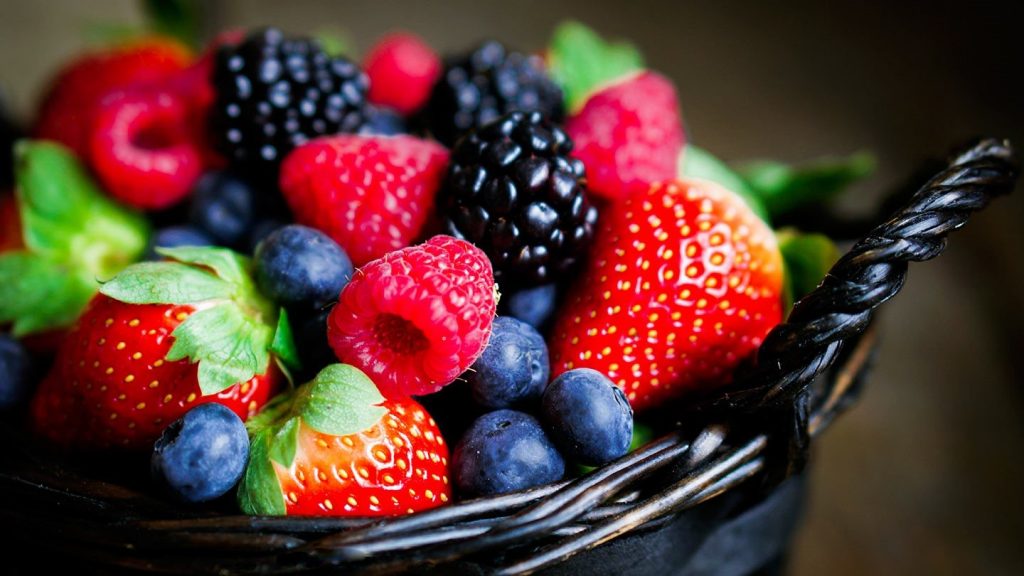Grapes, guava, cranberries, apples, potassium, avocado, grapefruit, strawberries, blueberries, watermelon and blackberries are some of the best fruits for diabetes in children.
In addition to being essentially rich sources of nutrients and fiber, fruits also consist of naturally occurring sugars, which becomes one of the most vital reasons why people with diabetes must pay attention to what fruit they consume in order to maintain a healthy range of their blood sugar level. But how does one select the best fruits for diabetes? Well, for this, you have to keep a count of your carbohydrates and overall, tracking everything you consume. So, in this article, we will discuss 11 best fruits for diabetes in children. Read below to find more:
11 Best Fruits to Eat for Diabetic Children
Grapes
According to the research, people who eat grapes have comparatively 12% lesser chances of developing type 2 diabetes than those who do not. However, the research does not provide with any cause and effect and is thus, only an observational research. But to let you know, grapes are high in sugar and thus, should not be eaten along with some other snack that is high in sugar as well.
Guava
Being a rich source of vitamin A, Vitamin C and consisting of high amounts of dietary fiber, Guava not only controls diabetes but is also considered to be beneficial for constipation. Also, the fruit has a low GI.
Cranberries
A cup of cranberries consists of 15 grams of carbohydrate. As per the studies, cranberries help to lower LDL (or bad cholesterol) and raise HDL (or good cholesterol). However, you must read the labels before you purchase cranberries because oftentimes, sugar is also added to it.
Apples
Being an excellent source of vitamin C, it helps in boosting the immunity and helps in healing the wounds. Not only this, but it also consists of a kind of phytochemical called as flavonoid, i.e. quercetin that can have anti-inflammatory properties. In fact, the soluble fiber helps in slowing down the absorption of nutrients into the bloodstream, reduces the cholesterol and also helps to keep you full.
Potassium
Oranges are a rich source of vitamin C, potassium, folates and thiamine. Thus, oranges can help to lower the blood pressure. A small orange consists of 62 calories, thus if you purchase a large one, make sure that you eat only half of it.
Avocado
With absolutely zero sugar and high healthy monounsaturated fats, avocado is one of the best choices for people with diabetes. According to a research, diets high in monounsaturated fats and low in poor quality carbohydrates can help improve insulin sensitivity.
Grapefruit
Grapefruit is rich in vitamin A and C and are shown to exhibit anti-inflammatory, antidiabetic, ant thrombogenic, anticancer and neuroprotective properties. Also, a pink grapefruit consists of an antioxidant known as lycopene that may increase HDL (Healthy cholesterol) and reduce LDL (bad cholesterol).
Strawberries
Along with being one of the most nutritious fruits, strawberries are high in antioxidants called anthocyanins. Anthocyanins help in reducing the cholesterol and insulin levels, improves blood sugar levels and prevents heart disease risk factors (in type 2 diabetes).
Blueberries
Being low in sugar (10 grams per 100 grams of fruit) and 2 grams of fiber, these when eaten together do not spike the blood sugar levels quickly, which can also be one of the reasons why the effect of 10 grams of sugar from fruits and 10 grams of sugar from a candy will not be the same. Also, due to other beneficial nutrients and antioxidants, blueberries also help to protect our cells from damage.
Blackberries
Blackberries are considered to be one of the best fruits for diabetics, with only 5 grams of sugar per 100 grams of fruit and only 5 grams of fiber. Thus, more fiber will help in improving insulin sensitivity, glucose (sugar) metabolism, high LDL cholesterol and weight management.
Watermelon
Being a rich source of lycopene, it helps to lower the blood sugar level, reduce the risk of type 2 diabetes and also improve insulin sensitivity. But it is important that your child consumes it in moderation as it is also high in FODMAPs that can lead to digestive issues.
Conclusion
It is important to maintain a healthy diet plan in order to reduce the risk of certain diabetic complications in your child that can include, kidney disease, nerve damage, eyesight issues, diabetic retinopathy, heart diseases and stroke etc. It is pretty normal if at times, your little one craves for something sweet, but instead of eating something unhealthy, you should replace it with something that is naturally sweet and healthy, for instance fruits or in fact, a diabetes-friendly smoothie.
References
https://www.medicalnewstoday.com/articles/311220.php
https://www.practo.com/healthfeed/top-10-fruits-for-diabetes-patient-11768/post
